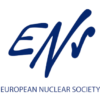NRG Safety Committee Approved Restart Solution For HFR In Petten
The High-Flux Reactor (HFR) in Petten, Netherlands, did not start up on 20 January 2022, due to a leak in a water system. NRG (ENS Corporate Member) reported no risk to nuclear safety, man, or the environment.
Since the discovery of the technical failure in the HFR’s cooling system during startup preparations, NRG promptly worked for finding a solution to repair such an important installation, crucial for the global medical radioisotopes production.
Last week, this solution has been approved by the internal safety committee and has been submitted to the Dutch regulator ANVS.
NRG has started to restore all functions by modifying the piping of the cooling system. These modifications also require an update of the HFR safety report.
This report is linked to the license and therefore an amendment to the license is required before the reactor can be restarted.
Considering that more than 30,000 patients worldwide are treated every day with medical isotopes from the HFR, NRG highlighted this fundamental social task requesting that the license be made effective immediately on publication.
This will allow NRG to start up the HFR after obtaining the necessary permission from the regulator ANVS.
NRG expects the reactor to start up on 17 March 2022.
Globally, radioisotopes are produced in a limited number of research reactors. The Petten HFR has for a long time supplied about 60% of Europe’s and 30% of the world’s use of medical radioactive sources.
In order to avoid any shortages while HFR has been offline, other research reactors, like the Polish MARIA or the BR2 in Belgium, have increased their production to compensate.
Focusing on this topic, the European Nuclear Society organised the webinar “Radioisotopes for life. Ensuring European supply – Stakeholders and opportunities”, in collaboration with Euratom Supply Agency, SCK CEN (both ENS Members), PALLAS and the EU Commission DG ENER.
Presentations ranged from the European Observatory on the Supply of Medical Radioisotopes to the SAMIRA Action Plan and the European Radioisotope Valley Initiative. The discussion then moved to the current activities of an operating research reactor producing these life-savings radioisotopes (BR2 – SCK CEN) and to the future project for a new facility (PALLAS reactor).
Following the profitable exchange of inspiring ideas and experiences, all the guests stressed again the crucial role those medical radioisotopes play in beating cancer and on the necessity to secure reliable, stable production and supply chain for the future.
Read the webinar’s summary and watch the recording on ENS YouTube Channel.
